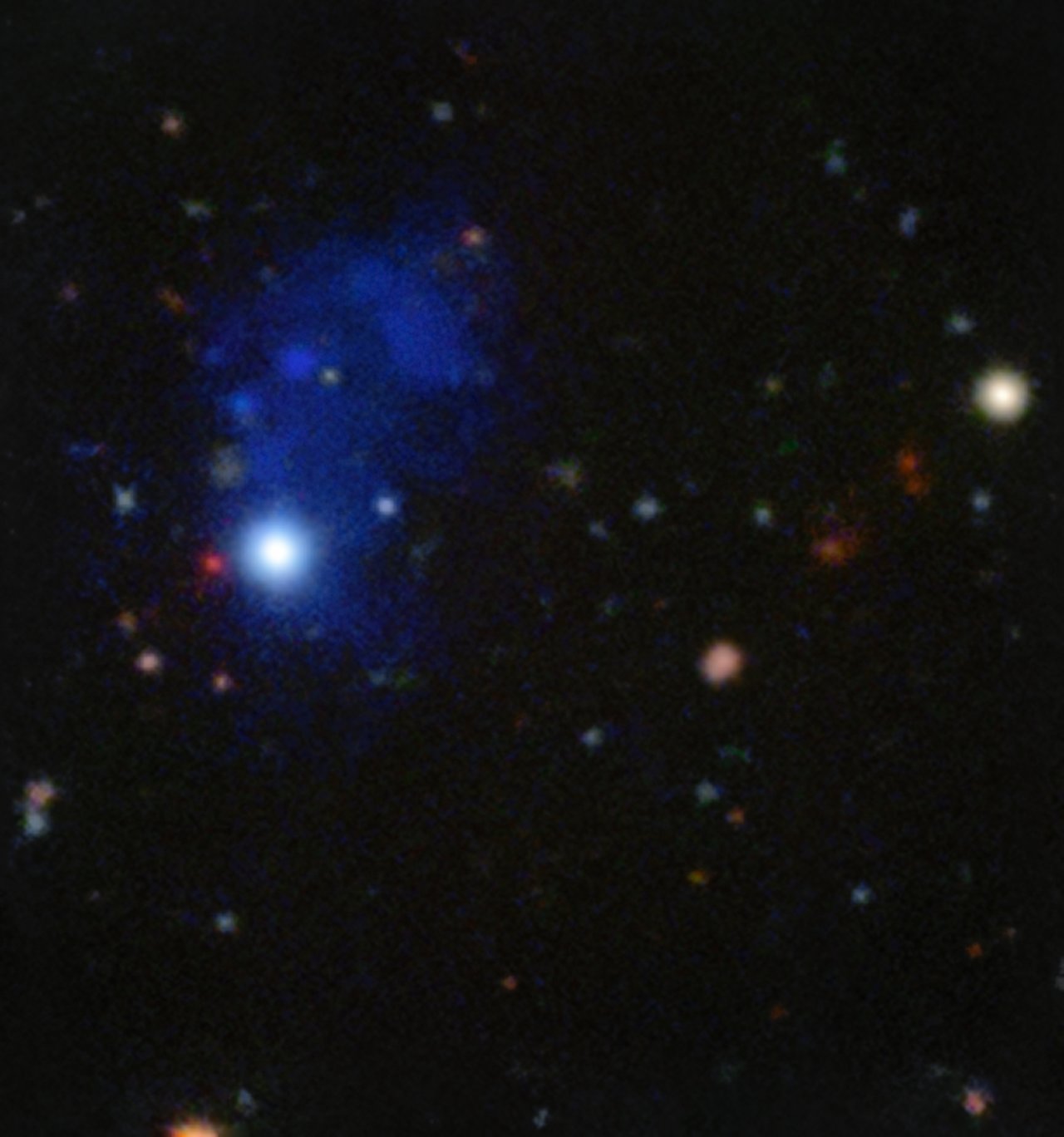Special Session SS8
26 June 2019
Quasar feedback: ejecting, compressing and enriching gas at different scales
Aims and scope
 Quasar feedback is considered a key mechanism in shaping galaxy evolution although, so far, we are still lacking clear-cut observational evidence of its effects. Multi-phase outflows generated by nuclear activity are now routinely observed, and may be the key to reveal quasar feedback in action. They are characterized by rich dynamics and provide the appealing opportunity to be studied over 6 orders of magnitude in radial distance (from <~ 0.01 pc to ~10 kpc). A multi-wavelength approach and multi-scale simulations are therefore mandatory to investigate how outflows originate and map both the shocked, perturbed gas and the quiescent ISM. There is growing evidence that quasar activity can also affect the circum-galactic medium, playing an active role in the baryon cycle.
Quasar feedback is considered a key mechanism in shaping galaxy evolution although, so far, we are still lacking clear-cut observational evidence of its effects. Multi-phase outflows generated by nuclear activity are now routinely observed, and may be the key to reveal quasar feedback in action. They are characterized by rich dynamics and provide the appealing opportunity to be studied over 6 orders of magnitude in radial distance (from <~ 0.01 pc to ~10 kpc). A multi-wavelength approach and multi-scale simulations are therefore mandatory to investigate how outflows originate and map both the shocked, perturbed gas and the quiescent ISM. There is growing evidence that quasar activity can also affect the circum-galactic medium, playing an active role in the baryon cycle.
Understanding the complex effects of quasar outflows and radiative output onto the multi-phase gas reservoirs within (and around) the host galaxy represents a challenge for present-day extragalactic astronomy and stimulates collaborations between communities which would have been unthinkable just a couple of years ago.
The proposed meeting represents a great opportunity to gather the growing community of astronomers studying the AGN-driven mechanisms of gas ejection, compression and enrichment at different scales.
The following key questions will be addressed:
How are different quasar winds connected?
How is outflow gas mass divided among the different gas phases?
How does the outflowing gas evolve as it expands outwards?
Negative vs. positive feedback: different or overlapping phases?
How do quasars influence their circum-galactic medium?
What is the role of quasar outflows in regulating the baryon cycle?
These open issues will be critically reviewed based on the most recent observations and models.
This meeting aims to be informal and facilitate new collaborations among young researchers and leading scientists.
Programme
- Section I - Multiphase gas in quasars: content, inflows & outflows from sub-pc to kpc-scale
- Section II - Around quasars: circum-galactic medium & environment
- Section III - Modeling quasar outflows and establishing their role in the feeding & feedback mechanism across cosmic time
We note that the organisers of this special session will work closely with the organisers of SS6 "Resolving the impact of AGN on galaxies using observations and simulations" to create complementary programs. We strongly encourage participants to read carefully aims and program of both sessions before submitting contributions.
Invited speakers
- Francoise Combes (Observatoire de Paris)
- Sebastiano Cantalupo (ETH Zurich)
- Massimo Gaspari (Princeton University)
Scientific organisers
- Enrico Piconcelli (INAF-OAR; Italy) [Chair]
- Manda Banerji (Cambridge; UK)
- Angela Bongiorno (INAF-OAR; Italy)
- Chiara Feruglio (INAF-Trieste; Italy)
- Alessandro Marconi (Univ. Florence; Italy)
- Francesco Tombesi (Univ. Maryland & Univ. Roma Tor Vergata)
- Dominika Wylezalek (ESO)
- Kastytis Zubovas (FTMC; Lithuania)
Contact
enrico.piconcelli @ inaf.it
Updated on Mon Feb 18 10:17:33 CET 2019
|